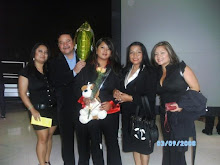Most adult learners in school settings bring certain characteristics. My observations about adult learners are that most have a mature sense of responsibility, a better sense of direction in their career paths, and are experiencing the burdens of responsible adulthood.
Five assumptions about adult learners are that the adult student has an independent self-concept, has life experiences that are a rich resource for learning, has needs that correspond with changing social roles, is problem centered and interested in immediate application of knowledge as well as being self-motivated (Conlan).
For the adult learner, Andragogy that is efficiently effective and engages the student in powerful learning experiences becomes a source for realizing the hopes for a better quality of life. A professional career is made possible and increased financial earnings can improve living standards.
Learning challenging lessons has always been a positive influence on my experience as an adult learner. Beginning with the training and on the job experiences in the U. S. Navy, as well as earning my first bachelor’s degree in health science to teaching adult learners since 1997. Formal and informal learning experiences have summed up to a great career with my present employer. This could not have been made possible without the education and professional experiences I’ve gained.
Today I am considering familiar aspects of instruction in a different dimension, on line instruction. Distance teaching makes me appreciate the term “facilitator” and I find it preferable because personal interaction is limited. Guiding the student through the necessary sources of information and asking the specific questions necessary for understanding the subject matter is very different from lecturing behind the podium.
Siemens mentions visualization and I notice that PowerPoint presentations on large screens and visual demonstrations capture and keep the attention of the adult learner for a longer period of time.
I would recommed a "student-centered" approach to distance teaching allowing for self-directed learning that encourages the student to interact with other learners, explore topics, create meaning and solve complex problems. Finally, the students would be required to share findings and conclusions learned from group and individual projects.
References:
Conlan, J., Grabowski S., & Smith K., (2010), Adult learning. In M. Orey (Ed.), Emerging perspectives on learning, teaching, and technology found at: http://projects.coe.uga.edu/epltt/index.php?title=Adult_Learning.
Hunt, J., Strategies for Middle School and High School Faculty Development in Media
and Technology, 2005.
Merriam, S. B. (2008). Adult learning theory for the twenty-first century. New Directions for Adult and Continuing Education, 119, 93–98.
Siemens, G. (2010), Theory of Connectivism. Video.
Wednesday, February 3, 2010
Subscribe to:
Post Comments (Atom)




No comments:
Post a Comment